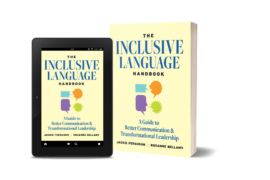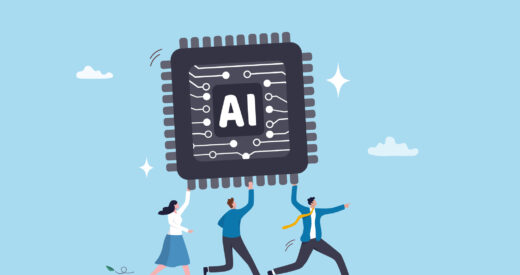Not Just Implementation… Certification
I have been in the Recruiting industry for over 16 years now, and have been working closely with Human Resource (HR) professionals for more than 22 years. Over that span of time, I have done far more than provide HR-related solutions as an external vendor. I have made a point of getting deeply engaged in the HR realm, including joining the Society for Human Resource Management (SHRM) over a decade ago, as well as becoming an active member of Raleigh Metro SHRM (RMSHRM), serving on the Board for several years and holding the honor of Chapter President in 2018. HR is not just an end-user buyer of my services – HR is a true business partner in my daily work life.
During my days as VP of Programs for RMSHRM (2015-16), one of our most important meetings of the year was our annual Diversity Meeting each July. Like clockwork, RMSHRM made sure that its July monthly meeting always met the thematic expectation of diverse content, including a speaker and an associated presentation about the importance of diversity in the workplace. It was something RMSHRM knew that it needed to offer to its members and for the discipline of HR. It was not a requirement, but it was a key value-add, and it was something RMSHRM had done before my time at the Programs helm, and something that it continued beyond my term and into 2020.
Ultimately, had RMSHRM not provided an annual diversity-focused meeting over the last several years, our Chapter would very likely have motored right along. Members would have continued renewing and monthly meetings would have cycled by, addressing other key HR topics. Not every SHRM Chapter in the United States provided diverse content at the time RMSHRM first implemented the annual July practice, and many did not have diversity as a regular, rotating part of the continuing education content made available to members. It was what one might call a “nice-to-have,” and something that separated RMSHRM from its peer Chapters as a forward-thinking organization.
Well, the days of a Diversity Meeting being a “nice-to-have” are gone. RMSHRM might very well have been ahead of its time by committing to educating its members regularly about issues related to diversity, but the world has changed dramatically through the course of 2020. Providing a “diversity” topic on the annual meeting slate is not going to get the job done – either in the world of HR or in business overall. Box-checking is simply no longer enough. HR professionals going to an annual meeting where diversity is discussed for an hour falls far short of where our mindset needs to be. Internal company meetings where leadership talks about the importance of implementing diversity practices “at some point soon” will no longer suffice. As a nation and as a global public, we have shifted very rapidly to a space where diversity is not a “nice-to-have.” Now we’re not just talking about the smaller topic of “diversity,” we’re opening the conversation up to the much more important and sizable issue of Diversity, Equity, & Inclusion (DEI), and DEI is neither nice nor cute nor something we’ll get to soon. It is an immediate, critical business imperative.
From my perspective as an external, third-party recruiter, DEI has absolutely exploded onto the HR scene. DEI transitioned from being something I encountered very occasionally in my work to something I address daily with both candidates and HR contacts. The velocity of this change has been incredible. When I’ve reached out to people regarding career opportunities in the past, sharing a job description and details about compensation might have been enough to set the hook for a recruiting-related conversation. Now, I’m having potentially-interested parties respond to me regarding the DEI policies of my clients. Many will state that they are not interested in moving forward with our communication prior to knowing more about where a company stands on the subject of DEI. Has my client implemented DEI practices? If not, when will they be doing so? And to what extent?
When it comes to the client acquisition side of my business, with three of the more recent projects I have won, the decision-making process was anchored in DEI. As a part of the proposal process, I needed to document how my agency addresses DEI, and I needed to include language related to my commitment to the issue, as well as to provide examples of work with past clients where I had demonstrated DEI practices. Was I seeking a diverse candidate pool? Was I interviewing across the DEI spectrum? Was I submitting a diverse selection of talent for consideration? Now that I’m working with these customers, HR executives and/or company leadership are tracking my efforts to make sure that I’m following through on DEI requirements. All candidate-related emails are tagged, and content is uploaded into an Applicant Tracking System (ATS) software. Resumes and LinkedIn profiles receive the very same treatment. And the percentage of diverse talent produced by my firm is measured against a goal – and discussed on weekly team sync calls. This is a change of epic proportion, people. Across my career, I have never seen a subject matter of any sort vault this quickly or dramatically to the front of the line with regard to the way business is done. Ever. DEI is truly a “must-have.”
As a result of everything I’ve experienced since mid-2020, I say to you again that implementation of DEI has become a business imperative. Talent clearly is going to make decisions about where it lands career-wise based more and more on how businesses encounter and address DEI. And it’s more than recruiting and encouraging people to enter the front door of a new employer. It’s about attrition and how rising turnover percentages could cripple organizations because they are behind the DEI curve – and as a result – are losing disenchanted employees at a rate far beyond the speed at which they can replace them. Companies are going to decide what vendor to work with based on whether or not a firm has DEI at the forefront of its operation. My company being woman-owned is a nice box-check, but the days of that being enough to clear the diversity hurdle in a bid process are rapidly passing. Implementing DEI and making it one of the foundational pillars of how your business operates must be a primary objective.
How does all of this connect to the importance of Certification? Great question. Let’s think about some other industries and professions for a moment… If someone wants to become a financial advisor, or a real estate broker, or a general contractor, these individuals must go through a certification process. They must attend classes or trainings or at the minimum work through a defined course of independent study. Then they must take an exam and pass with a certain minimum score. Once this goal is achieved, these people are now certified and approved to call themselves Financial Advisors or Real Estate Brokers or General Contractors. Oftentimes, they receive a license along with this certification, and they can begin work in their chosen industries. Additionally, this newly-certified person will have continuing education responsibilities, and they will have to repeat the classes/training/study process on some regular basis in order to maintain certification and to continue operating in their chosen sectors. This certification process assures that these people are up to date on the latest information and practices associated with working at the top of their professions. Additionally, certification brings comfort to those individuals (clients, internal company peers/stakeholders, etc.) working with these people, as there is documented evidence that they have achieved status as a certified professional, measured against a recognized and accepted standard.
This is also the case in the realm of HR. People who practice HR as a career encounter certification requirements as well. In order to be recognized as a certified HR professional, these people must prepare for and pass exams to achieve certain industry recognitions, and they must maintain the continuing education process over time in order to remain certified. Many companies make hiring decisions for HR professional roles based on whether or not applicants have certification. The achievement of that status – and the letters that follow someone’s name/title as a result – exhibits that the person you are working with is making every effort to be amongst the most educated and strategically-prepared individuals in their professional arena.
The realm of DEI is no different. As we accelerate forward in a world where this topic is now a concrete business imperative, DEI certification is a real and necessary requirement. If companies are going to identify an internal employee (most often an HR professional) as the subject-matter expert on DEI inside the organization, and if they are going to give them the associated title, that person should absolutely go through the process of earning a certification. That’s the best way to make certain that this anointed individual is appropriately trained and will also be perceived internally as credible (without credibility, it will be quite hard to affect and drive change). Similarly, if a business is going to engage an external DEI consultant to assist them with implementation of DEI processes and procedures, it must be assured that the person selected for the project has the recognized and accredited expertise to do the job well and deliver on expectations.
As of late, I’ve been making a point of reaching out to HR friends and connections of mine who are now heading up DEI for their organizations. I’ve been chatting with them about how they found themselves in their roles, and I’ve been asking them how well-equipped they feel to deliver on what their organizations need from a DEI perspective, both presently and prospectively. I’ve also been talking to HR professionals who have unfortunately found themselves in the unemployment pool due to COVID, and a good number of them have brought up the idea of starting their own independent DEI consulting practices. They have the interest and the desire to work in the space and to help companies and individuals evolve forward in the DEI sphere. The internal HR leaders I talked to feel exactly the same way. But none of them believe that they are 100% ready to deliver on the promises they want to make, and all of them have opined that they want and need a place and resource where DEI knowledge can be collected, distilled, and delivered in a professional and repeatable way. They’re talking about certification, even though they haven’t been calling it that yet. But they know they need it, and they are absolutely right.
Implementation of DEI is critically important. It is the number one business imperative in 2021, in my opinion. And certification is available at our fingertips… thanks to The Diversity Movement. Learn more at https://thediversitymovement.com/certified-diversity-executive/.
Will Barfield is the President & CEO of Barfield Revenue Consulting, a sales- and marketing-focused recruiting and consulting firm that specializes in the software (SaaS), technology, digital agency, and staffing industry verticals. Barfield, a TDM partner, teaches best practices for recruiting, hiring, executive coaching, and successful selling.






